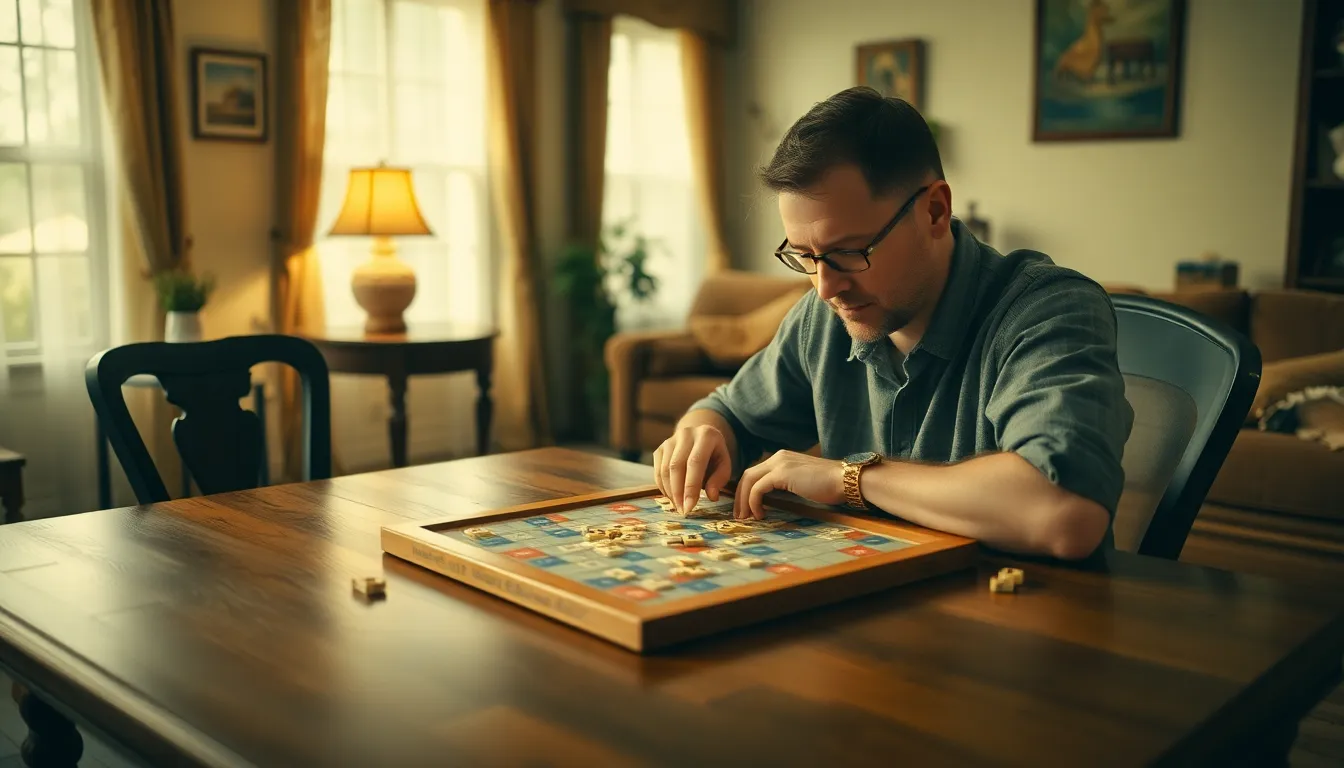Words are the building blocks of communication, but sometimes they can feel like a jigsaw puzzle with a missing piece. Ever found yourself scratching your head over a five-letter word where the second letter is an elusive ‘a’? You’re not alone. This quirky little challenge can turn a casual game of Scrabble into a mental marathon.
Table of Contents
ToggleOverview of Five Letter Words
Finding five-letter words can be challenging, especially with specific letter placements. The letter ‘a’ in the second position offers a unique focus for word enthusiasts. Numerous options exist when considering popular five-letter words with ‘a’ in this role.
Consider some examples, such as “claim,” “flame,” and “crane.” These words illustrate how versatile five-letter constructions can be while fitting the criteria. Players often leverage these words in games to maximize their scores, utilizing strategic placements and letter combinations.
Familiarity with five-letter words containing ‘a’ as the second letter benefits players during competitive scenarios. Lists of such words can assist in quick recall and effective gameplay. An organized approach reveals potential choices, facilitating faster decision-making during turns.
Furthermore, trends in language and popular usage provide insights into which five-letter words frequently appear in everyday conversation. Words like “slant,” “brand,” and “plant” frequently surface in various contexts, solidifying their relevance.
Exploring five-letter words aids in expanding vocabulary and enhancing language skills. Engaging with these words during language games sharpens cognitive abilities and boosts confidence. Players improve their overall performance through consistent practice and exploration of new word combinations.
Importance of Letter Position

Letter placement plays a crucial role in word formation and can often dictate the outcome during word games like Scrabble. Familiarity with specific positions enhances word recognition and boosts gameplay strategies.
Analyzing the Second Letter
The second letter in a five-letter word significantly directs the word’s structure. Identifying a vowel, such as ‘a,’ sets the stage for potential letter combinations. Many five-letter words featuring ‘a’ in this position, like “crash” and “brave,” showcase the variety that exists. Understanding these patterns assists players in recognizing potential words quickly. Players who analyze second-letter placements develop stronger vocabularies and strategic muscle.
Impact on Word Formation
The placement of letters influences how words are constructed. Letters that follow ‘a’ can either be consonants or vowels, creating different possibilities. For instance, ‘a’ can lead to words ending in different variations, such as “frame” or “scale.” These patterns provide players with an array of options during gameplay. Patterns also reveal preferred combinations, impacting choices in competitive settings. Mastery of word formation through letter positions builds confidence and enhances decision-making skills.
Examples of Five Letter Words with Second Letter A
Finding five-letter words with ‘a’ as the second letter opens up numerous possibilities. These words span various categories, enhancing both gameplay and vocabulary.
Category Breakdown
- Common Verbs: Examples include “brave,” “crash,” and “flame.” Each verb carries distinct meanings that can lead to creative sentence construction.
- Nouns: Words like “grass,” “brand,” and “crane” serve as excellent examples. These nouns commonly appear in everyday language, making them useful for Scrabble.
- Adjectives: Words such as “brash” and “gamer” add descriptive elements to conversation. Their unique placements suit various contexts.
- Adverbs: For instance, “grasp” serves as a useful adverb form when discussing actions. These words help refine observational statements.
- Colloquial Terms: Casual terms like “shady” and “madly” resonate in informal language. They often find a place in everyday speech.
Engagement with these categories provides players essential tools for strategic gameplay. Each word serves to expand vocabulary, enriching language skills dramatically.
Less Common Words
Engaging with less common five-letter words featuring ‘a’ as the second letter can enhance understanding and gameplay strategy. Consider words such as “latch,” which indicates a mechanism for closing something. Another example, “caddy,” refers to a container or a person who assists players, notably in golf.
A lesser-known word is “wavy,” which describes a form that exhibits curves or undulations. The term “dandy” characterizes someone who pays excessive attention to appearance, often considered stylish. Specifics like these add depth to vocabulary knowledge.
Exploring “magma,” the molten rock beneath Earth’s surface, introduces technical language that can be useful in various contexts. Word grounding comes from knowing terms like “wasps,” which identifies certain flying insects, often noted for their stinging capability.
Focusing on practical applications, words such as “badge” stand out. This term has multiple meanings, including an emblem worn for identification or as a symbol of achievement. Words enrich gameplay and serve in broader communications.
Identifying “sandy” reveals a quality associated with sand, applicable in describing environments or textures. Before diving into games, players can keep these words in mind to navigate through challenges efficiently. The versatility found in these terms highlights the potential for varied expressions, ultimately benefiting gameplay in an enjoyable manner.
Strategies for Finding Words
Finding words that fit specific criteria improves both gameplay and vocabulary. Players can employ various strategies to enhance their search for five-letter words with ‘a’ as the second letter.
Word Games and Tools
Players find great value in online word solvers and apps. Tools like Scrabble Word Finder and Word Unscrambler offer quick access to words based on given criteria. Many players also use traditional dictionaries and thesauruses to deepen their understanding. These resources not only provide standard words but also reveal uncommon options that add flair to gameplay. By integrating tools into practice sessions, players boost their word recall and expand their knowledge base.
Learning Techniques
Utilizing flashcards aids in memorizing five-letter words. Repetition helps reinforce recognition, especially for words like “grasp” and “brave.” Engaging in word puzzles and crosswords often encourages cognitive flexibility. Group study sessions can facilitate discussion about specific word patterns, enhancing retention. Regular interaction with lists of five-letter words creates a foundation for spontaneous usage during games. Emphasizing active usage in daily conversations cements a deeper understanding of each word’s application.
Mastering five-letter words with ‘a’ as the second letter can significantly enhance gameplay in word games like Scrabble. Familiarity with these words not only boosts vocabulary but also sharpens strategic thinking. Engaging with a diverse range of words helps players recognize patterns and make informed decisions during competition.
Utilizing resources like online word solvers and traditional dictionaries can further aid in expanding word knowledge. Regular practice through puzzles and group discussions fosters cognitive flexibility and reinforces word recognition. By consistently exploring and applying these five-letter words, players can elevate their performance and enjoy a richer language experience.




